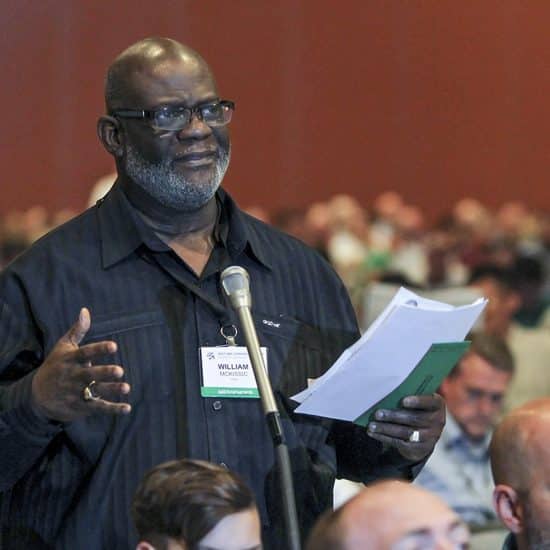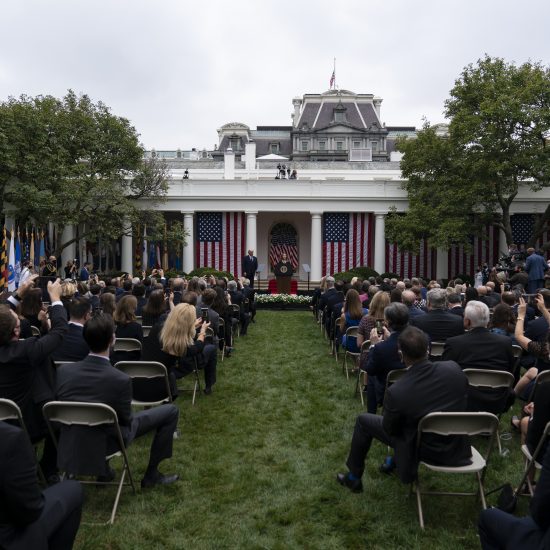WASHINGTON (ABP) — The House of Representatives narrowly passed a bill late Dec. 8 that would offer a path to citizenship for the children of illegal immigrants. Faith leaders are mounting a final push to get the measure through the Senate, where it still faces an uphill battle.
On a 216-198 vote, the House passed the DREAM (Development, Relief and Education for Alien Minors) Act. The bill is aimed at securing the futures of the children of illegal immigrants whose parents brought them to the United States after they were born. Its best chance for passing any time before 2013 is almost certainly in Congress’ current lame-duck session.
Senate Majority Leader Harry Reid (D-Nev.) announced plans to bring it to the Senate floor Dec. 9, but pulled back after it became apparent that its supporters could not muster the 60-vote threshold required to overcome a filibuster threatened by Republicans.
DREAM Act supporters including President Obama are pressuring Republican senators who expressed support for similar legislation in the past to break the filibuster. Otherwise, the legislation is likely doomed after Republicans officially take over the House in January.
“The DREAM Act corrects one of the most egregious flaws of a badly broken immigration system,” Obama said, in a statement released after the House vote. “A flaw that forces children who have grown up in America, who speak English, who have excelled in our communities as academics, athletes, or volunteers to put their lives and talent on hold at a great cost to themselves and our nation.”
But one targeted Republican, Florida Sen. George LeMieux, said Dec. 9 he could not support the current legislation.
“I am very sympathetic to the young people who entered our country illegally by no fault of their own, but I cannot support consideration of the DREAM Act without addressing border security,” he said, in a statement released shortly before Reid called off the scheduled vote. “I recently visited the U.S.-Mexico border in Arizona and witnessed the progress toward securing the border. Fully funding and replicating our security successes across the border would allow us to address the DREAM act. However, we are still far from achieving a level of border security that is acceptable to me or to the American people.”
Other Republicans expressed procedural objections to the bill, while some opponents claim it is simply another form of "amnesty" for illegal immigrants, which they oppose.
Although the children targeted by the bill are already educated in America's public schools, their lack of citizenship or residency documentation prevents most of them from attending college or getting good-paying jobs — no matter how much they excel in school.
Among other requirements, the DREAM Act would allow students a path to legal status if:
- They can prove their parents brought them to the United States before they were 16;
- They have been in the country at least five years;
- They have graduated from high school;
- They plan to attend college or enter the military; and,
- They maintain “good moral character” and avoid legal trouble.
Religious leaders from across the ideological spectrum have expressed support for the legislation. Many have joined in coalitions to lobby Congress for its passage. In a recent Dallas Morning News online panel of faith leaders discussing the bill’s moral implications, Dallas Theological Seminary New Testament professor Darrell Bock said the issue was clear to him.
“These children live here and are citizens of the state they live in through no fault of their own. They will stay here, so why not make them productive citizens if they qualify for university?” he wrote. “Failing to do so perpetuates an underclass and limits how they might contribute to the economy, only risking perpetuating potential problems.”
The Senate version of the bill is S. 3992.
-30-
Robert Marus is managing editor and Washington bureau chief for Associated Baptist Press.
Related ABP stories:
Christians join last-ditch effort to pass immigration reform for youngsters (11/30/2010)
Judge blocks Ariz. law; faith leaders, Senate Democrats respond (7/28/2010)




